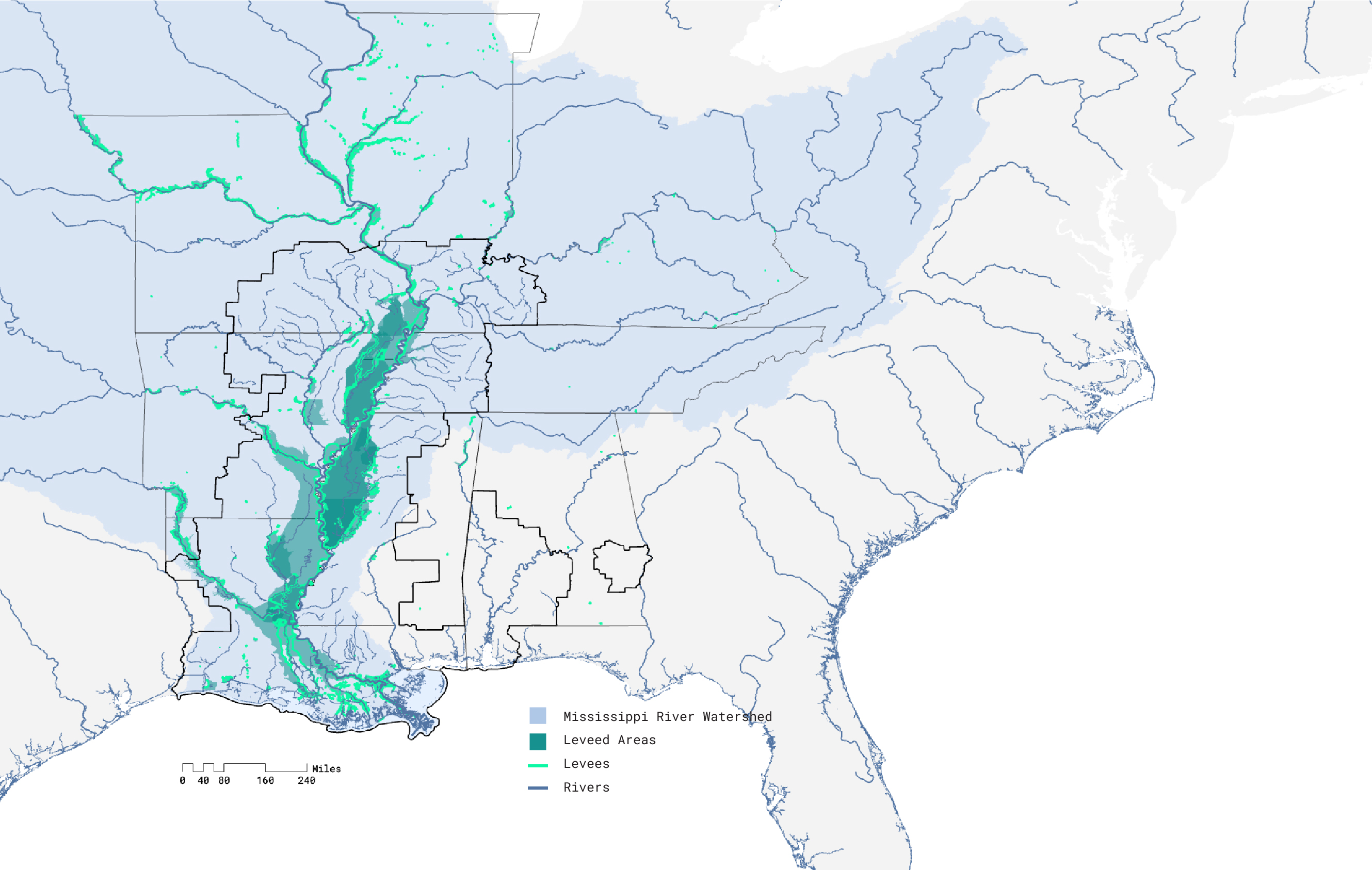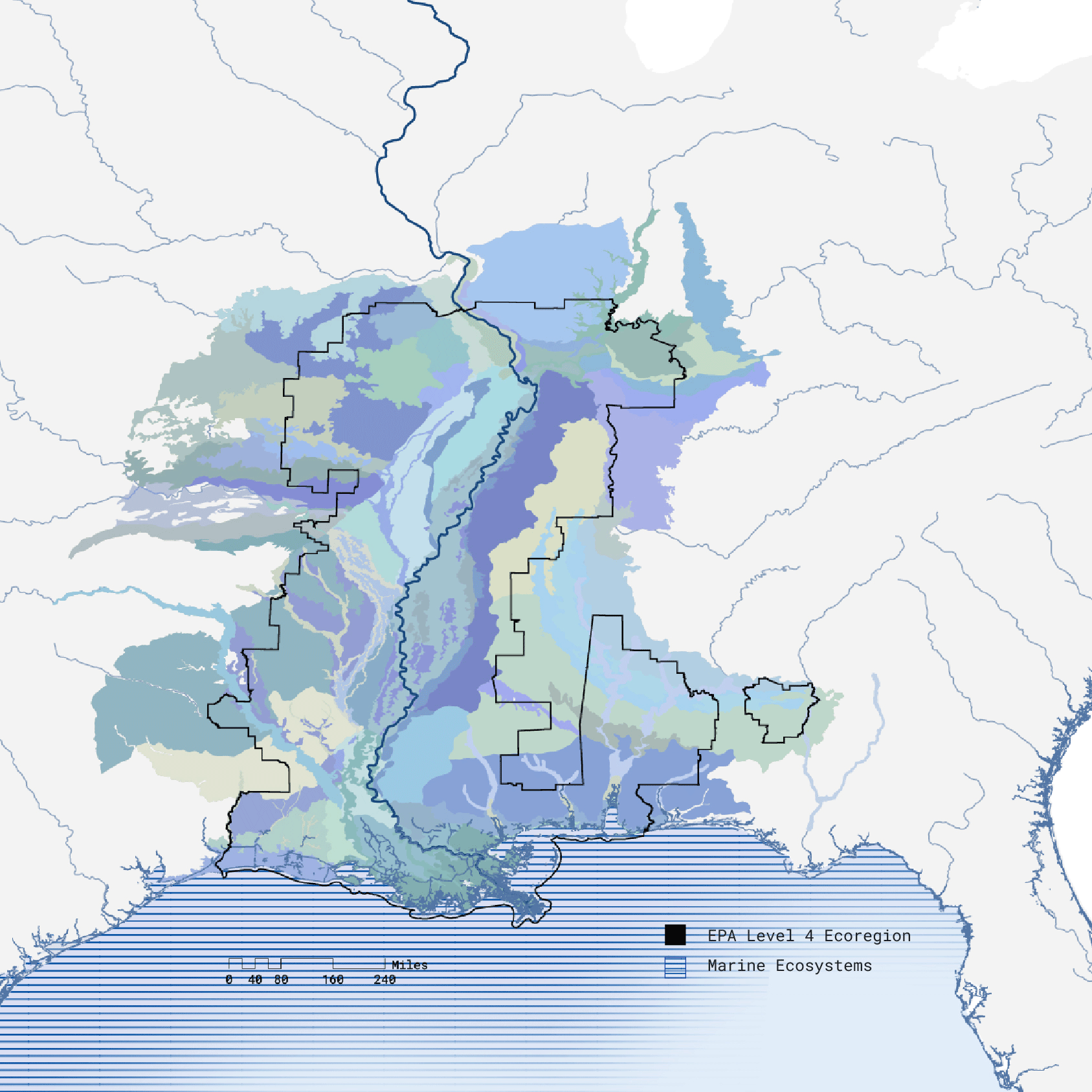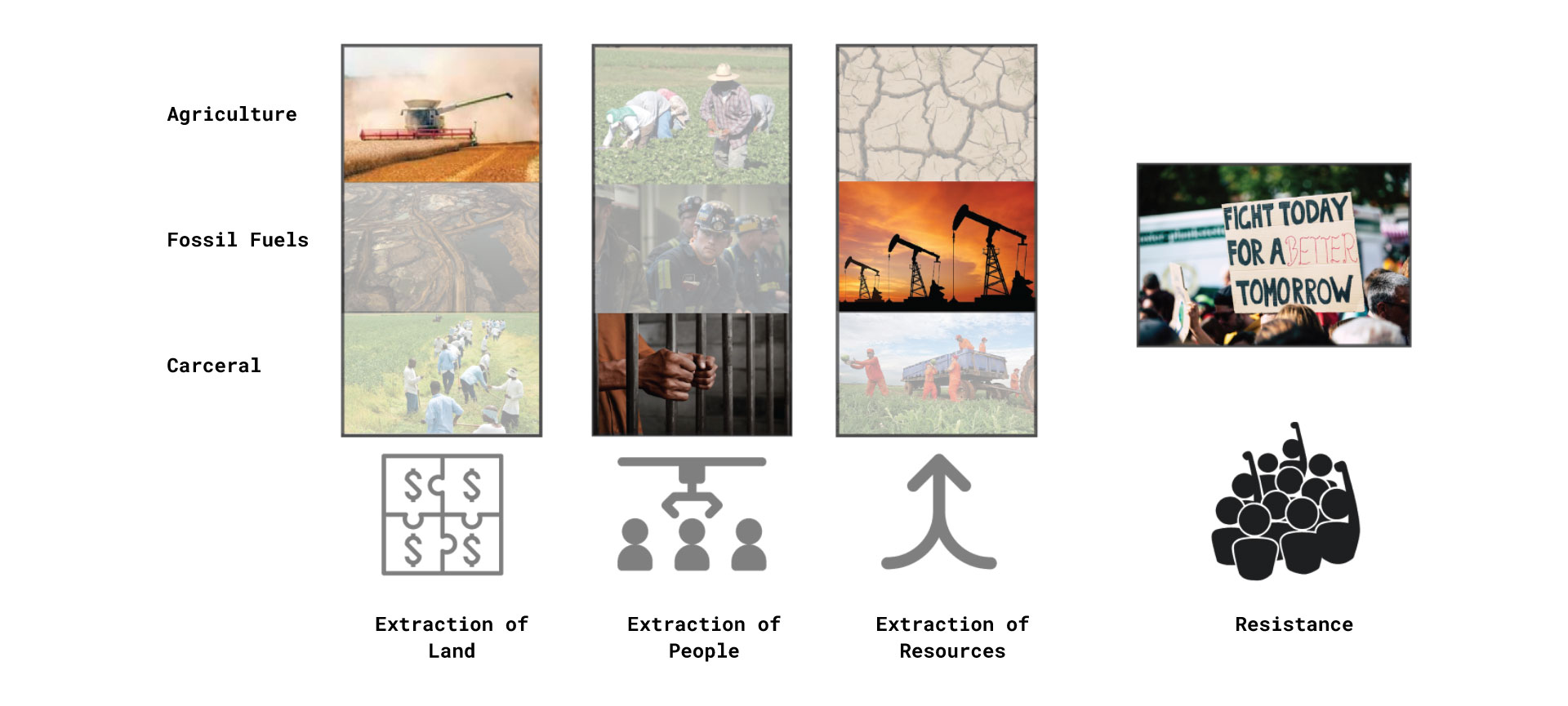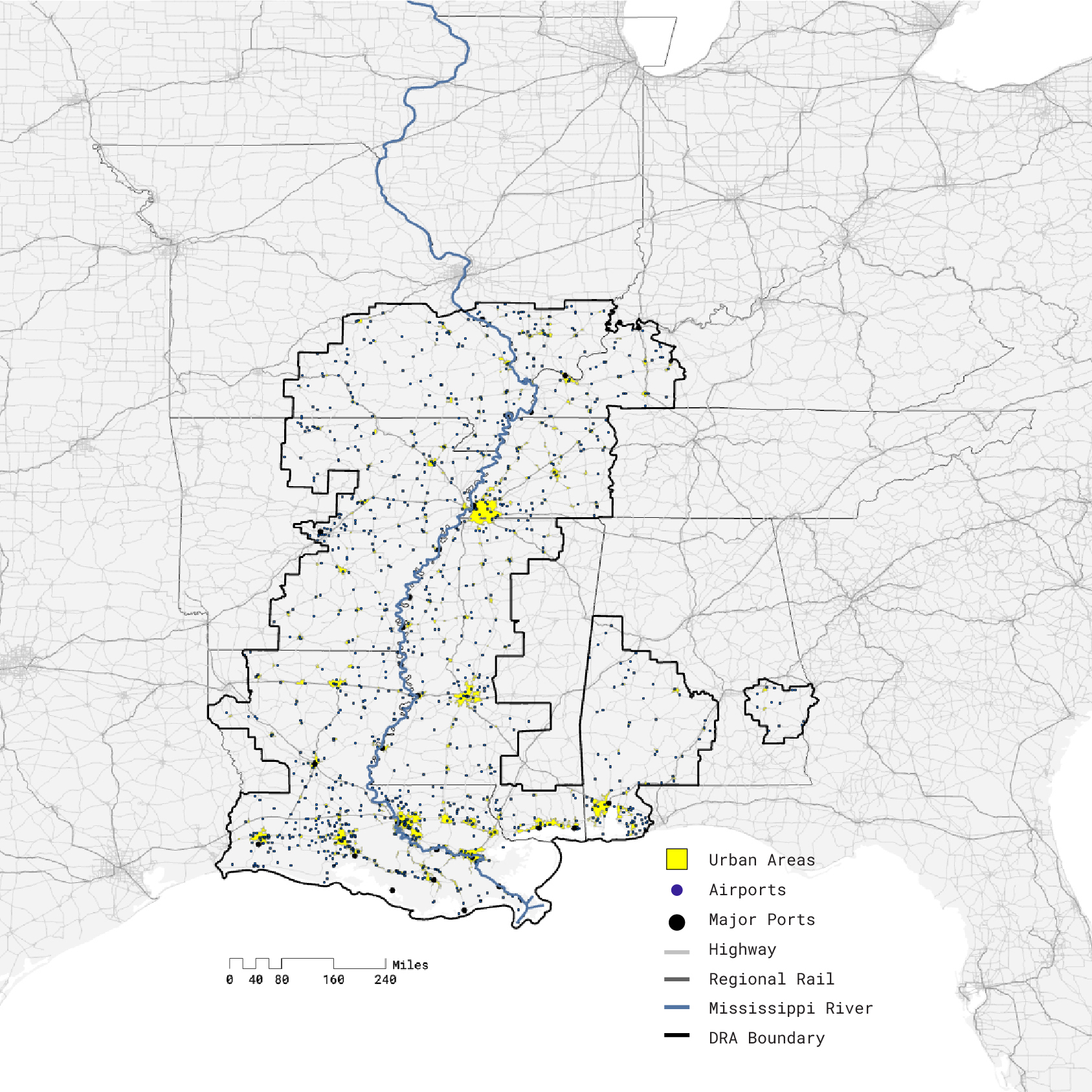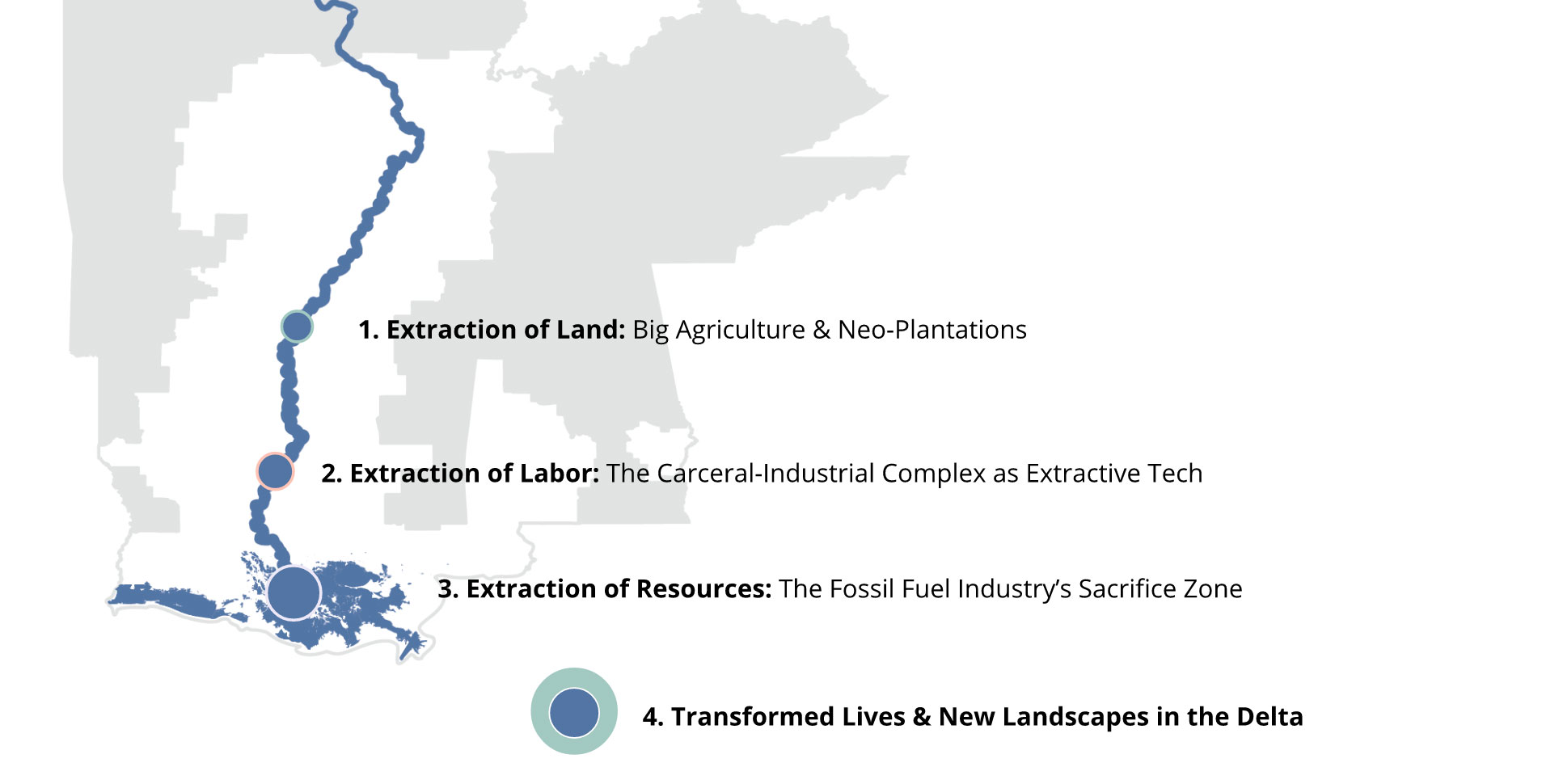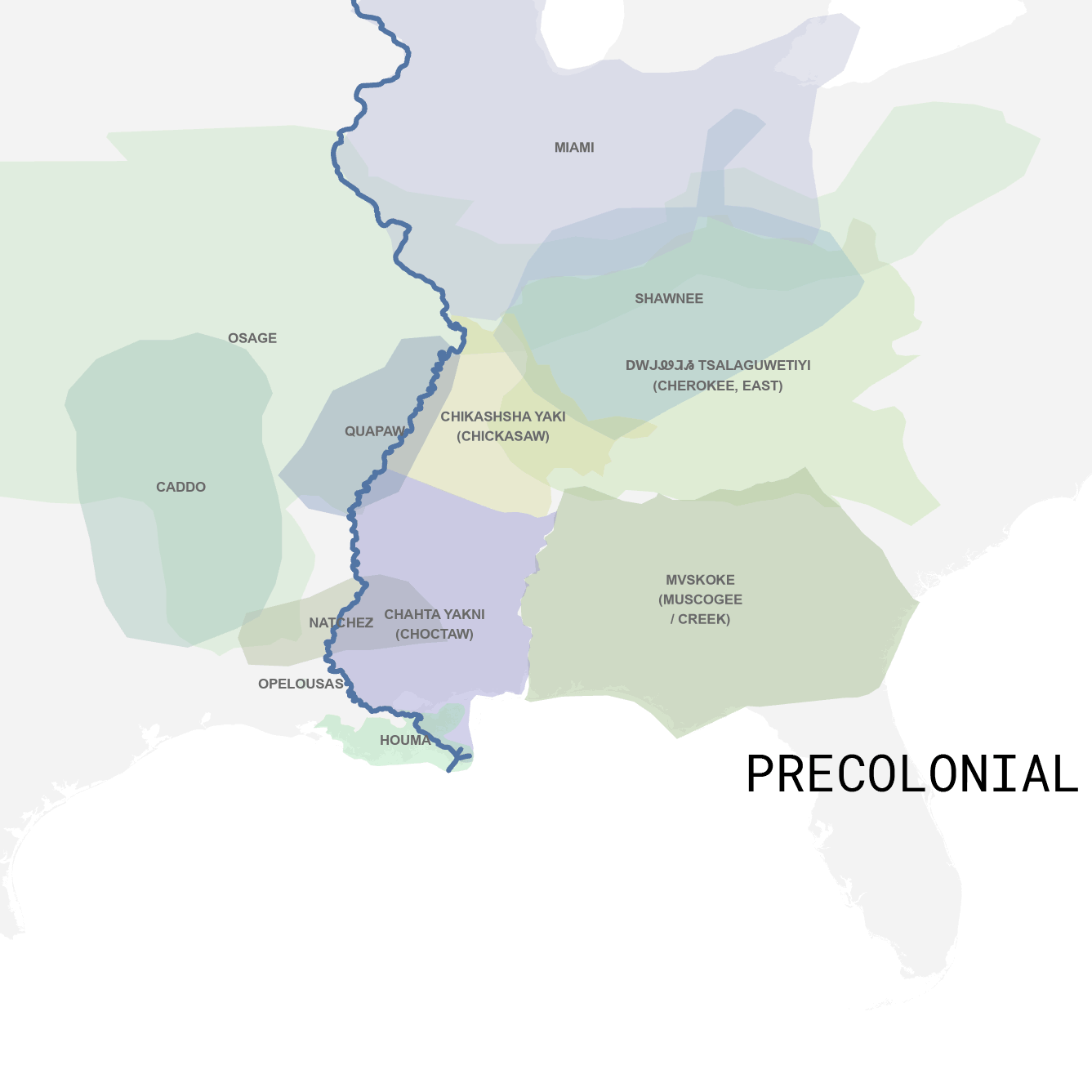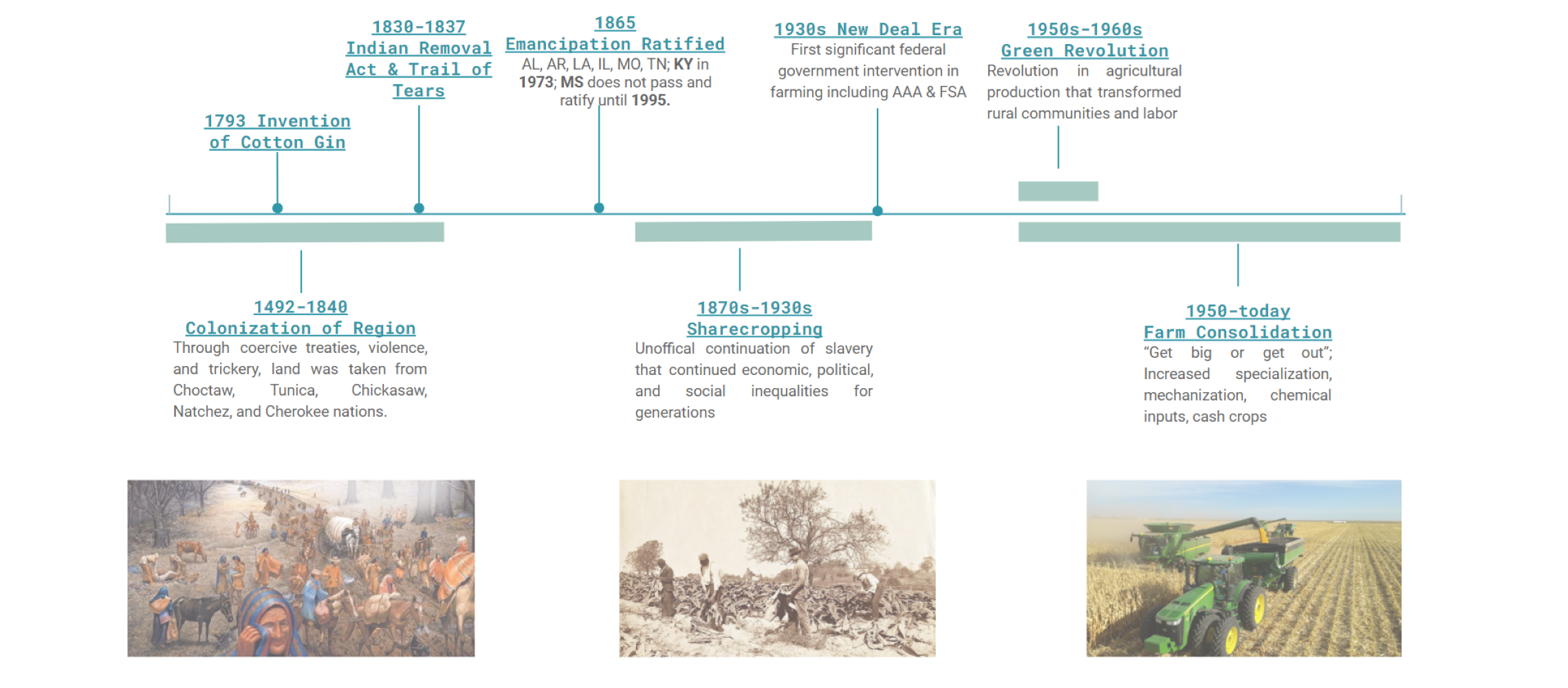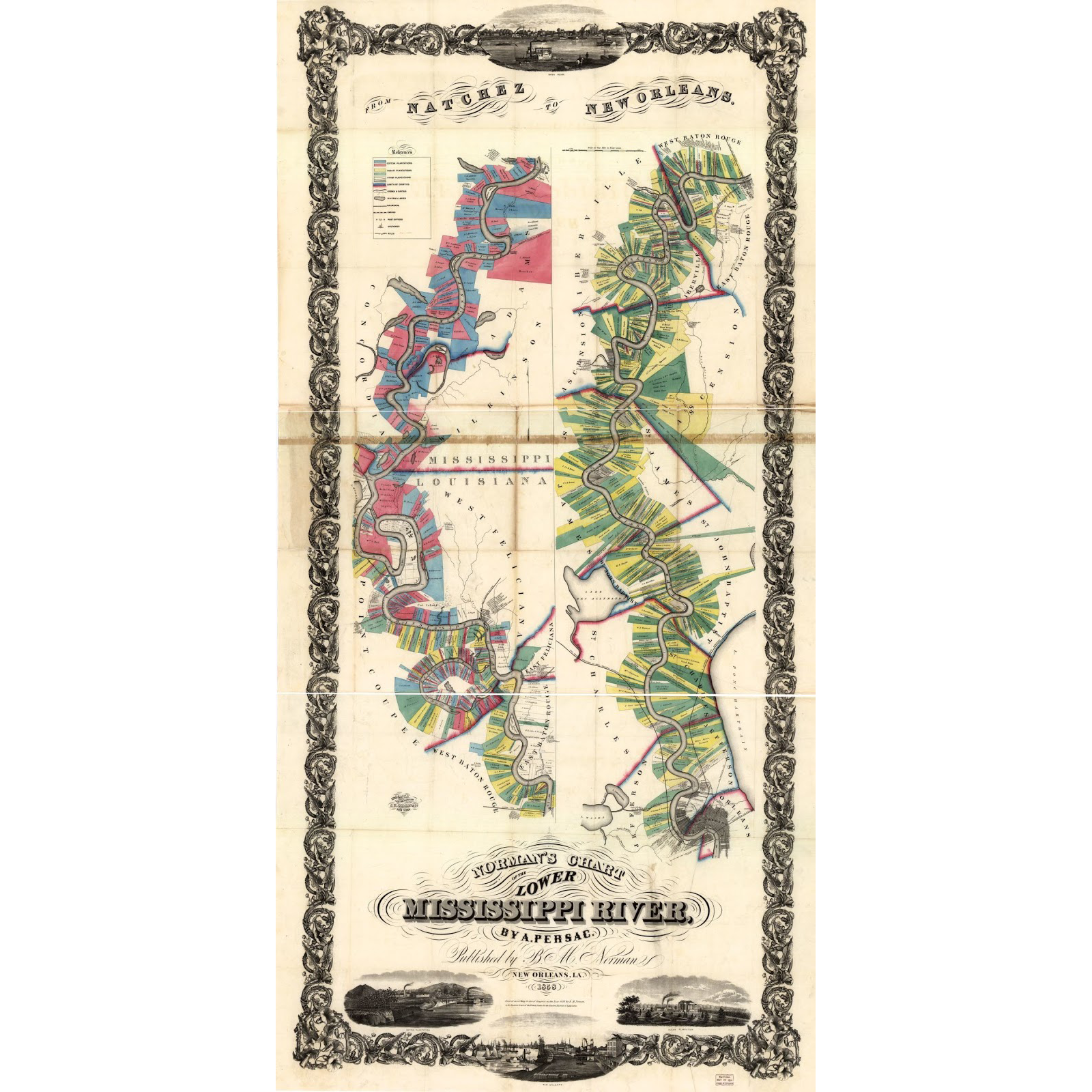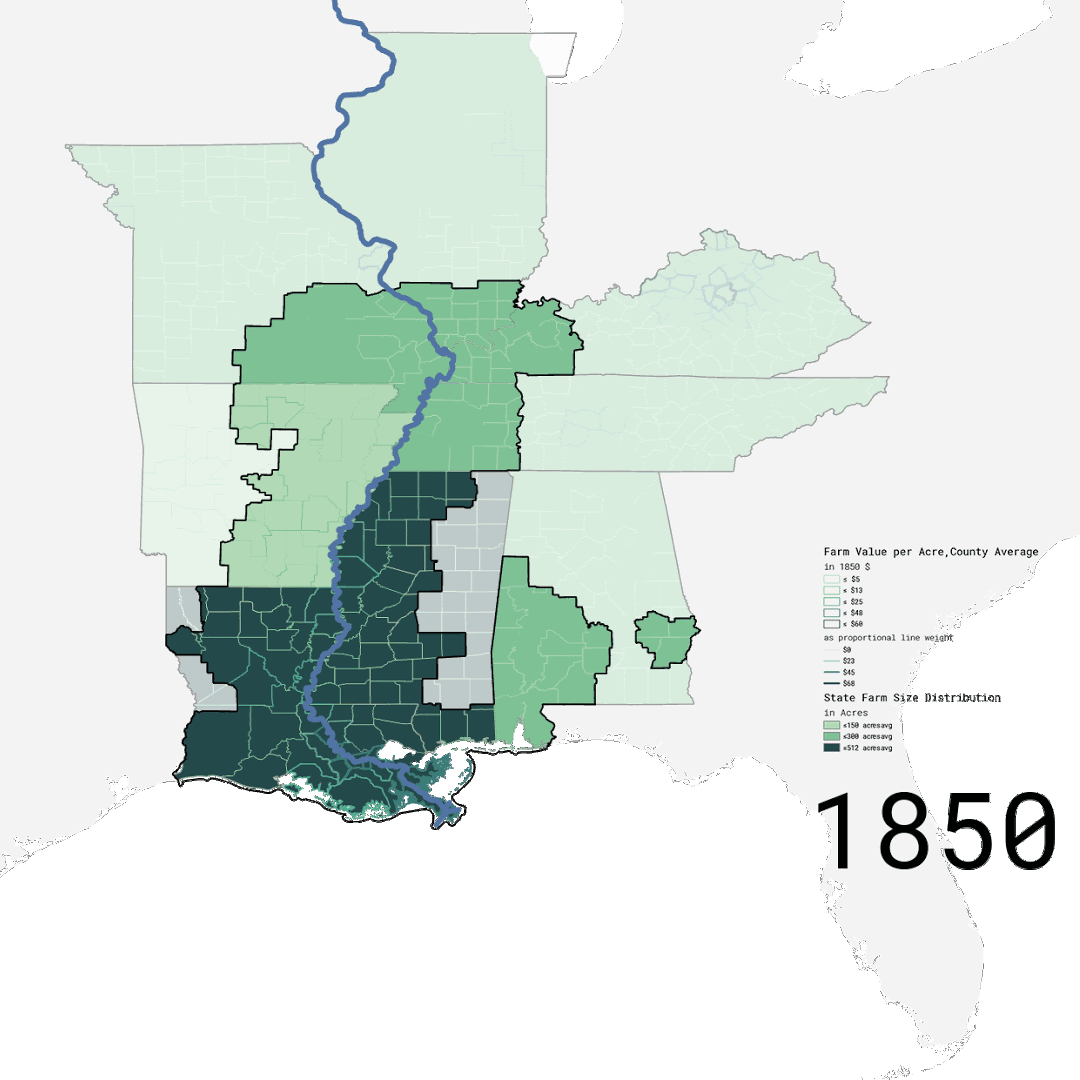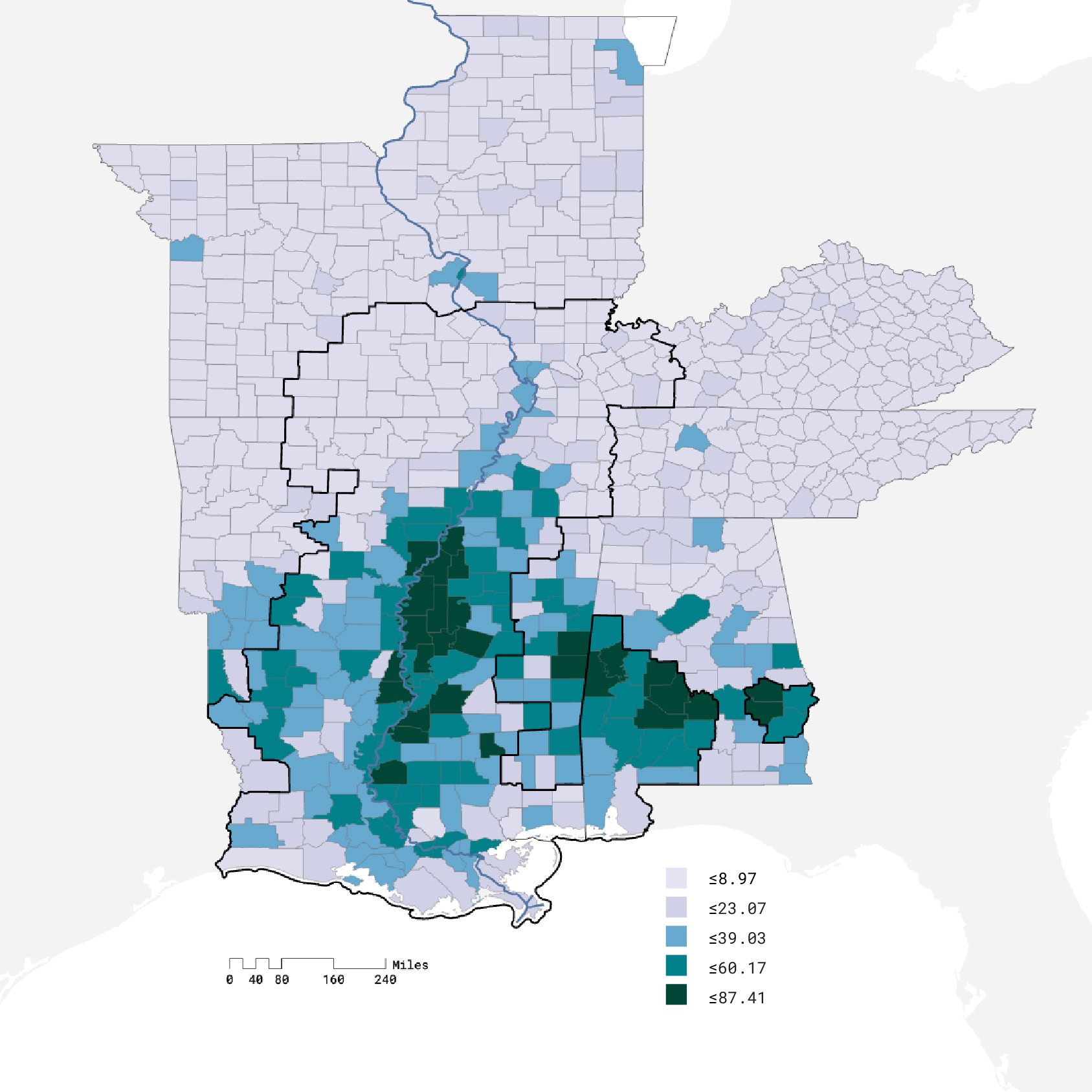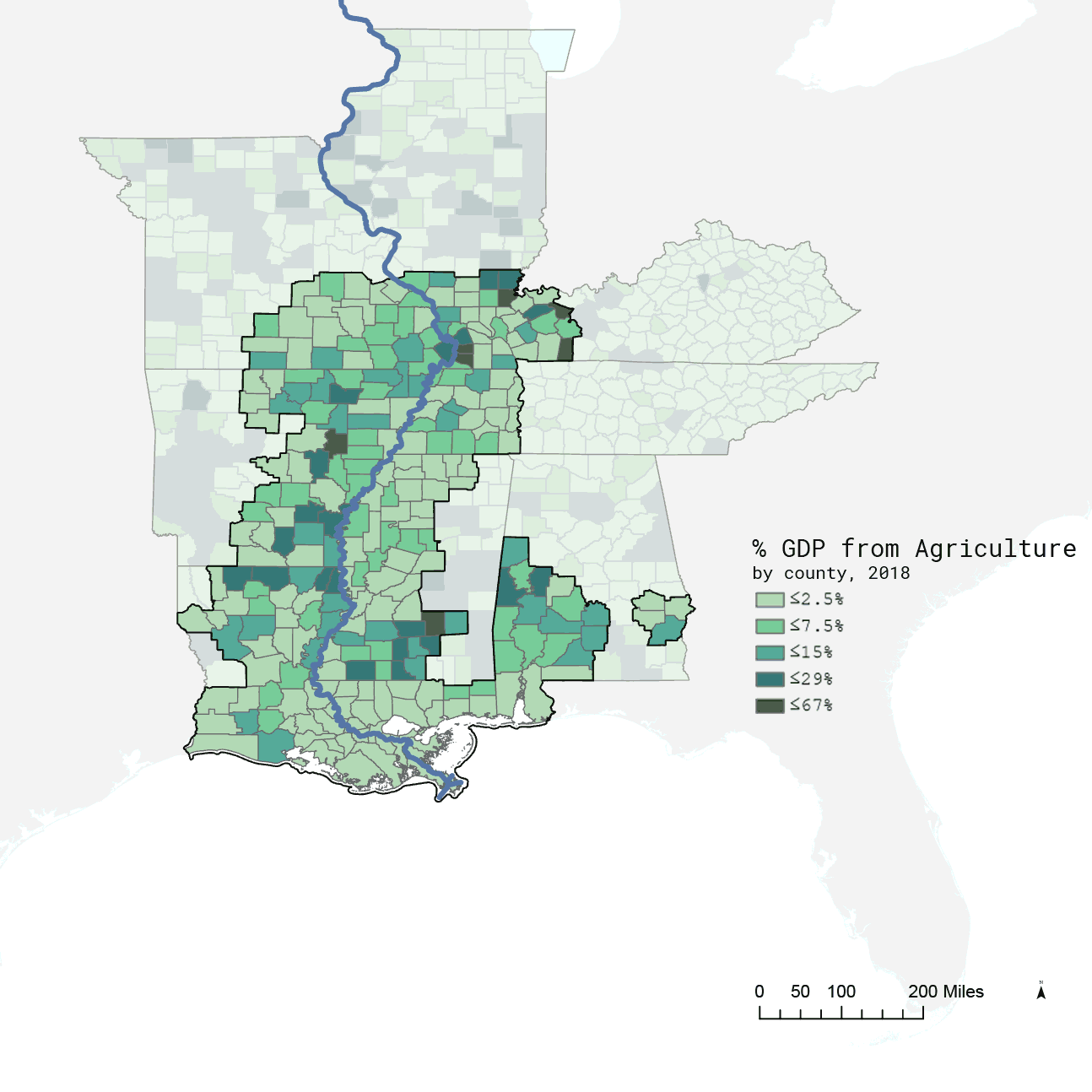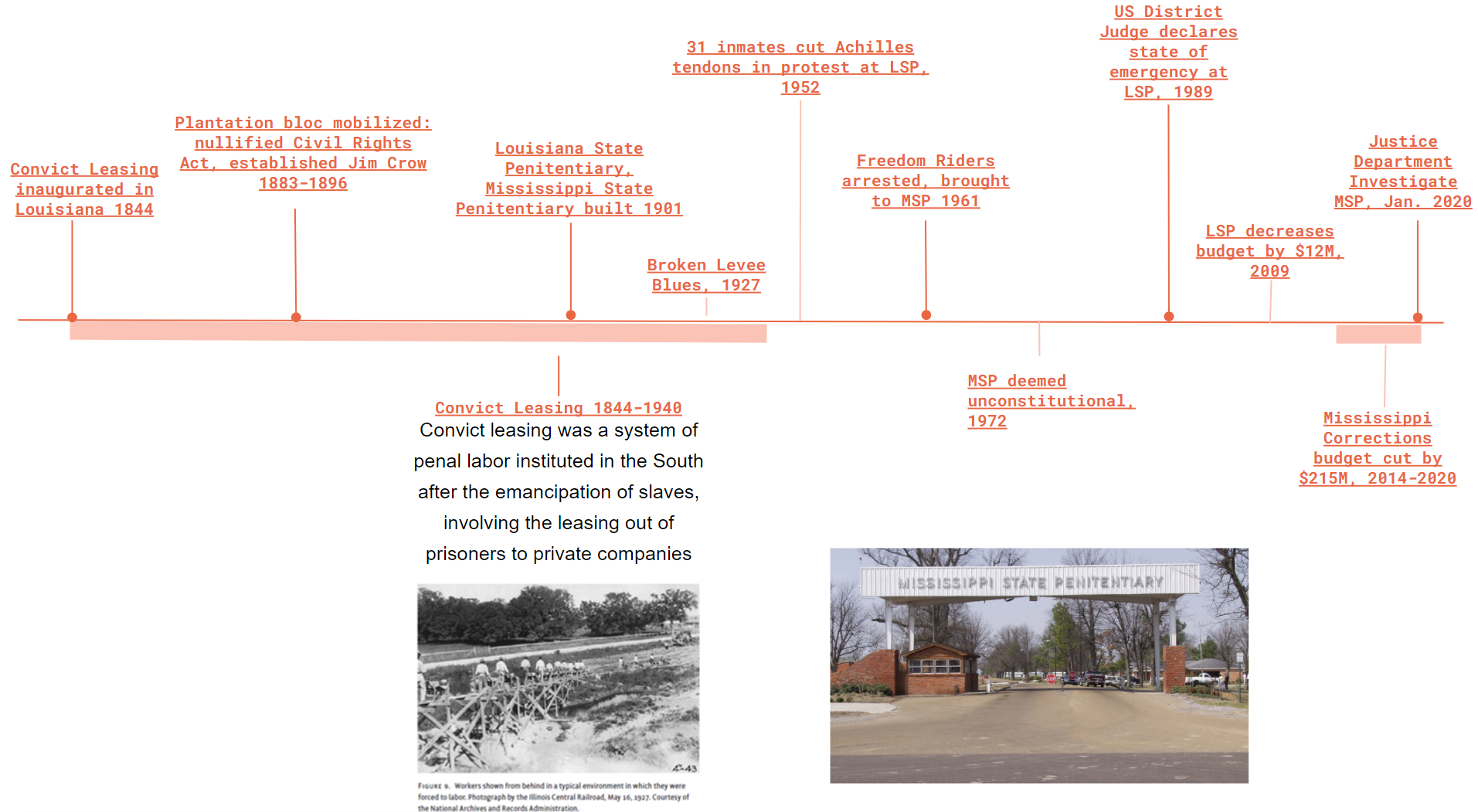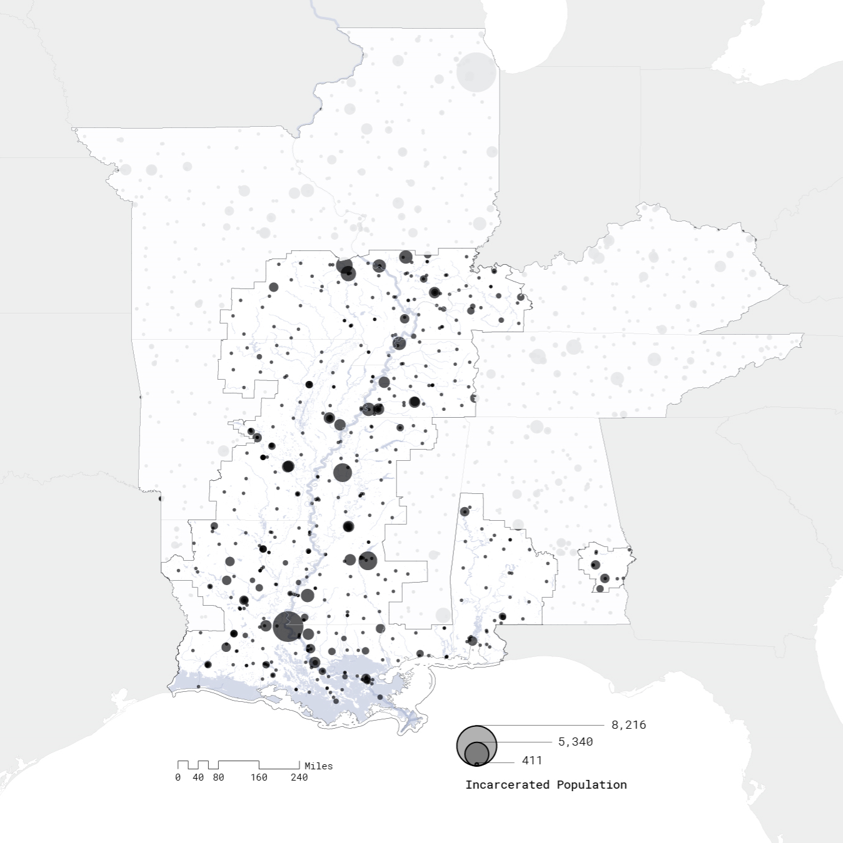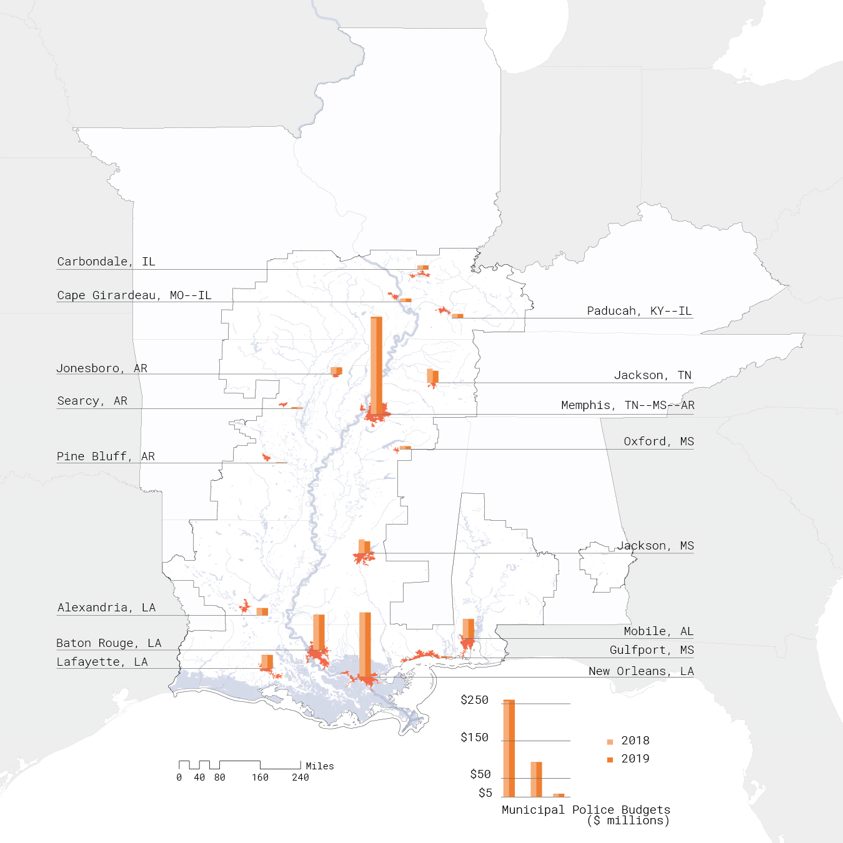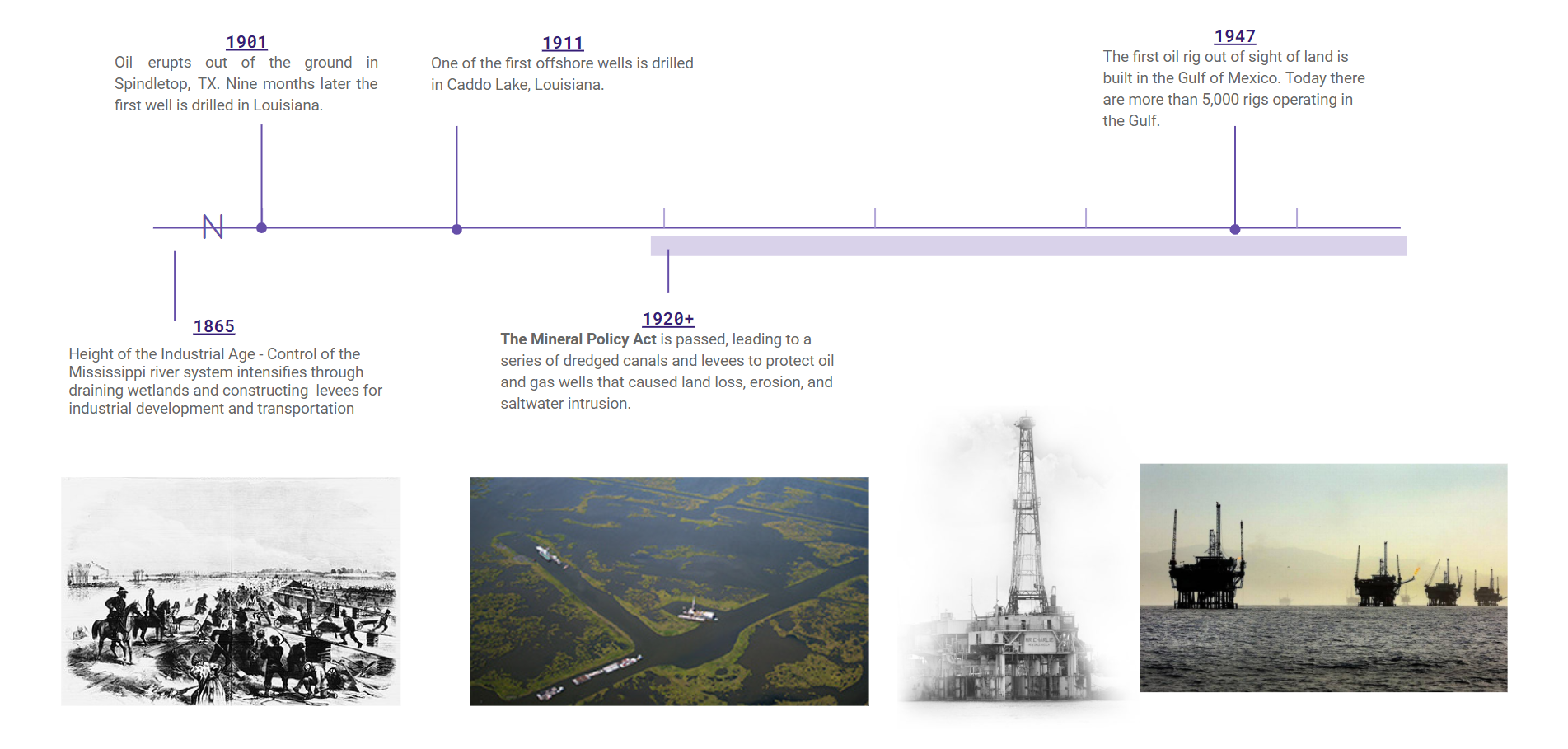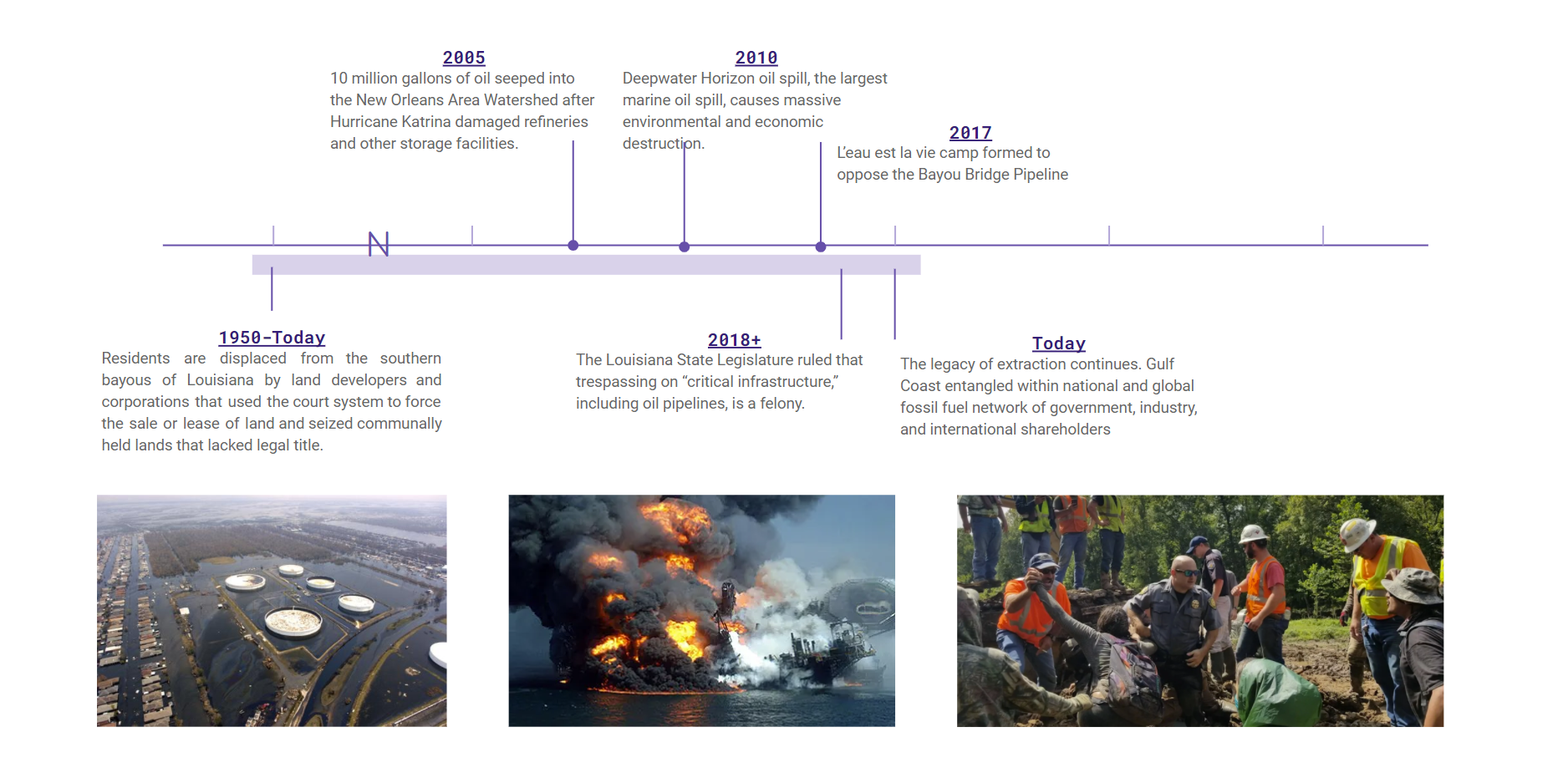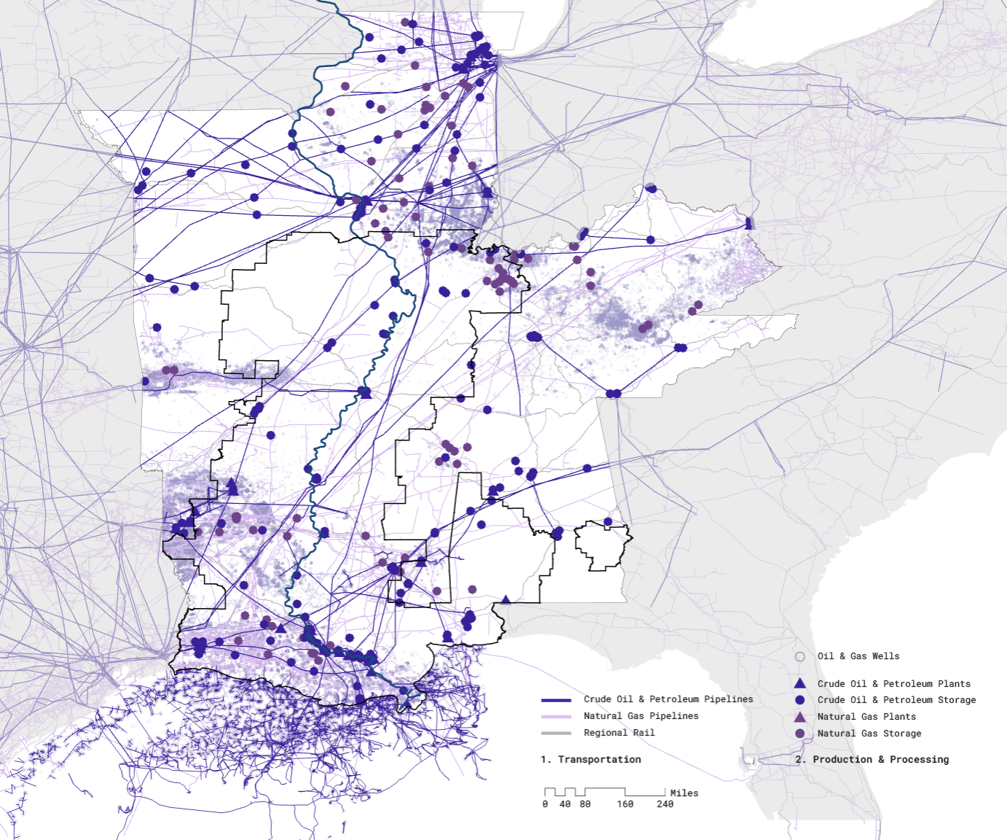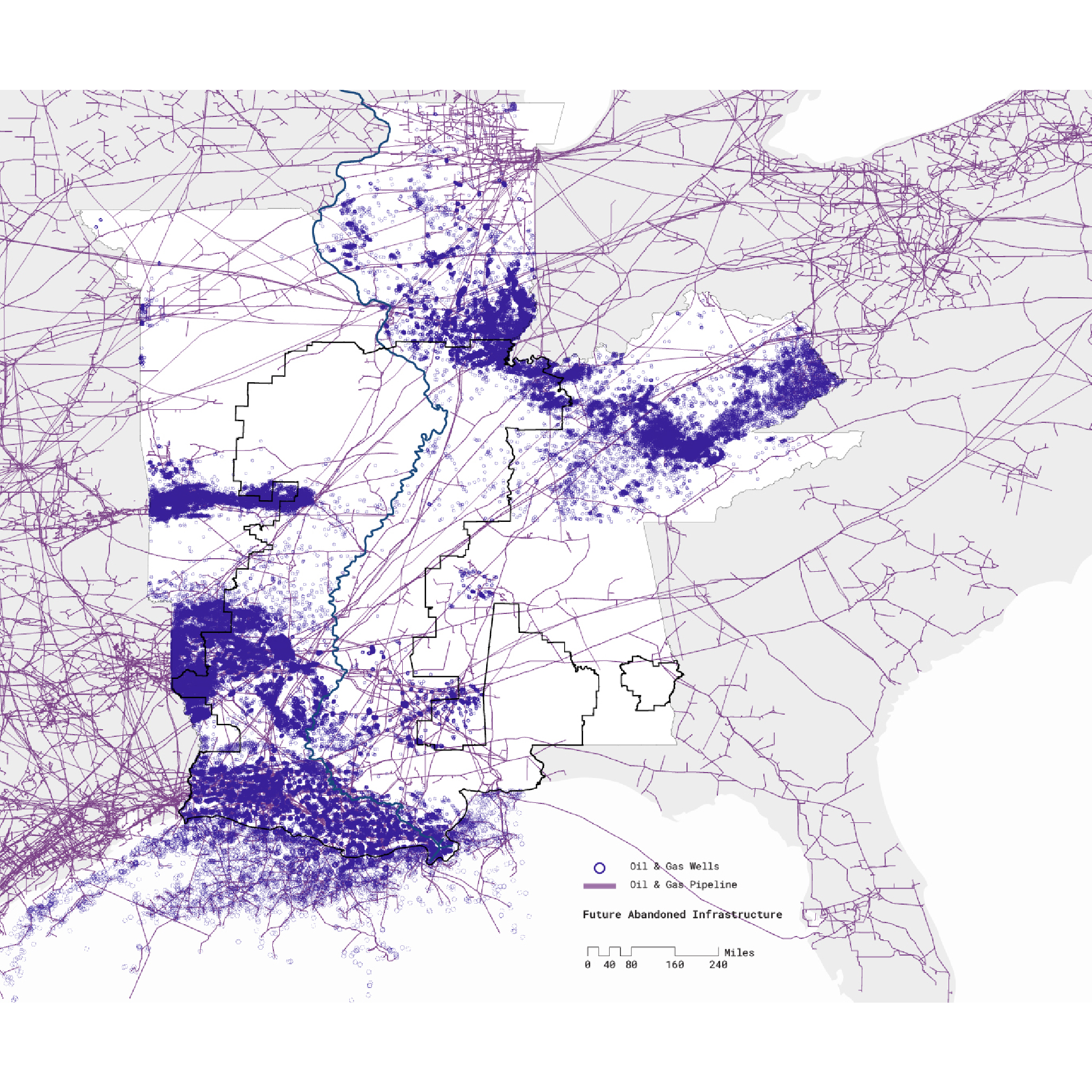Delta as a place of wealth
Water is life in the Mississippi Delta, and sometimes also death. Constrained by levees the height of a 5-story building that both protect and threaten those on the other side, the Mississippi River drains water from about 41% of the United States, carrying with it the nutrients, barges and flotsam of faraway cities and fields. The flow of the river guides the gaze, making it natural to orient downriver, to assume the delta is defined by what it receives. The fertile land along the riverbanks and lush maze of the bayous echoes a similar story. But the delta has never been merely – or mainly – a terminus, it is more often a point of departure, a tap, a mine, a meandering corridor oriented towards many elsewhere. The wealth is embedded in the layers of topsoil, sediment and fossilized organic material trapped 2,000+ feet underneath the current river’s edge. This wealth also lives within the bodies and cultures of those who work and know the land; have surveyed, measured, and priced it, and themselves have been surveyed, measured, and priced. Their value to Delta’s farmland has been immeasurable, yet the region’s slaveholding planters and contemporary corporate landowners have held a monopoly control over the fruits of this labor and knowledge.
The worship and extraction of land, labor and resources in the Delta, even as their value is marginalized and cheapened, is one of the region’s many paradoxes; one that produces and re-produces violence and dispossession across the landscape at multiple scales.
A corollary paradox is the role of technology in this land of many literal and figurative ‘backwaters’ – technology has always been integral for processes of extraction, beginning with enslaved people being treated as instruments to transform the rich soil of the Delta into financial riches for the class of planters who owned nearly all of the land and many of its people.
